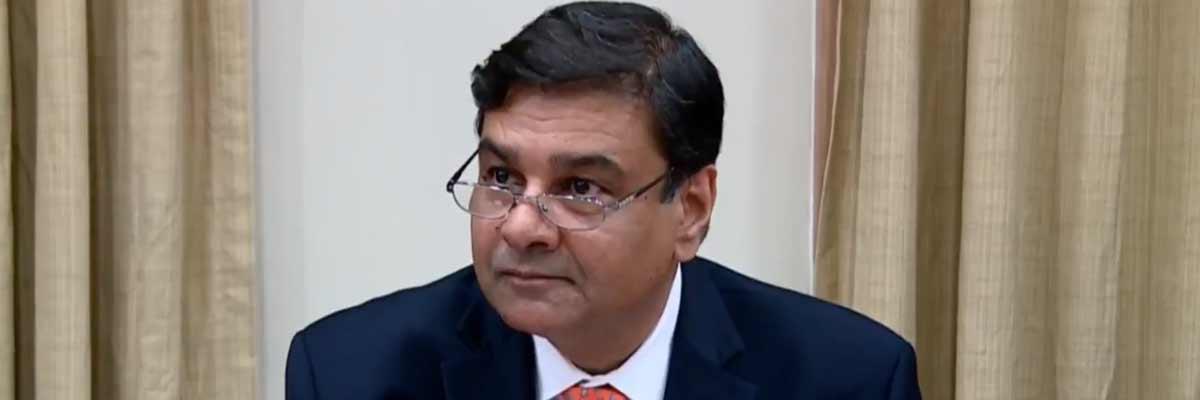Urjit Patel quits as RBI Governor, setting off a crisis

The Reserve Bank of India RBI Governor Urjit Patel resigned from his post on Monday with immediate effect, citing personal reasons, setting of a major crisis in Indias politicoeconomic sphere
Mumbai: The Reserve Bank of India (RBI) Governor Urjit Patel resigned from his post on Monday with immediate effect, citing "personal reasons", setting of a major crisis in India's politico-economic sphere.
Patel's resignation comes in the backdrop of the ongoing tiff between the government and the central bank over the liquidity and credit crunch in the economy that provoked an extraordinary meeting of the RBI board on November 19.
"On account of personal reasons, I have decided to step down from my current position effective immediately," Patel said in a brief statement released by the RBI.
Patel had taken charge as Governor on September 4, 2016, for a three-year term, following Raghuram Rajan's decision not to seek a second term.
The historic tensions in government-central bank relations were reignited in October when, in a public lecture, RBI Deputy Governor Viral Acharya talked about the independence of the Reserve Bank, arguing that any compromise could be "potentially catastrophic" for the economy.
The government responded with the Finance Ministry seeking discussions with the central bank under the never-used-before Section 7 of the RBI Act which empowers the government to issue directions to the RBI Governor, who then summoned a meeting of the bank board.
The government's differences with the RBI centres on four issues - it wanted liquidity support to head off any risk of a credit freeze, a relaxation in capital requirements for lenders, relaxing the prompt corrective action (PCA) rules for banks struggling with accumulated non-performing assets (NPAs or bad loans) and support for micro, small and medium enterprises.
Central to the liquidity issue was the government's demand that the RBI hand over its surplus reserves by amending its "economic capital framework". Analysts noted that the government's demand came in the face of a huge fiscal deficit and the need to boost the economy in an election year.
The RBI's central board has 18 members, which includes the Governor and his four deputies as full-time official directors, while the rest have been nominated by the government, including the Economic Affairs and Financial Services Secretaries.
Prime Minister Narendra Modi met with Patel before the board meeting and what emerged on November 19 was seen as settling the debate on the central bank's autonomy and clearly establishing the government as a stakeholder in policy making.
On the issue of reserves, the RBI board decided to form an expert committee to examine its economic capital framework, which will decide the amount of reserves it can maintain, handing over the balance to the government.
On the matter of relaxing the Prompt Corrective Action (PCA) norms for banks with bad loans, it decided that the issue will be examined by the RBI's Board for Financial Supervision.
Eleven of the 21 state-run banks are under the PCA framework, while NPAs accumulated in the Indian banking system have touched a staggering Rs 12 lakh crore.
"The RBI-government fight has been pushed down, abated for now and postponed, but the NPAs issue continues to remain," Sudipto Mundle on the Board of Governors of the National Institute of Public Finance and Policy had said following the RBI board meeting.
Asked about the government-RBI tiff, former Chief Economic Advisor (CEA) Arvind Subramanian told reporters here on Saturday that the central bank's autonomy must be protected because the country will benefit from strong institutions.
"I have myself advocated that RBI should play a pro-active role, but its surplus funds should not go towards routine financing of spending and deficit financing -- that would amount to raiding the RBI," he added.
On the RBI board, with a majority of government nominees, the former CEA said: "I think that part of maintaining a real autonomy is not to politicise the board. The board should not be politicised. Not only it must not be done, it must not be seen to be done either."

